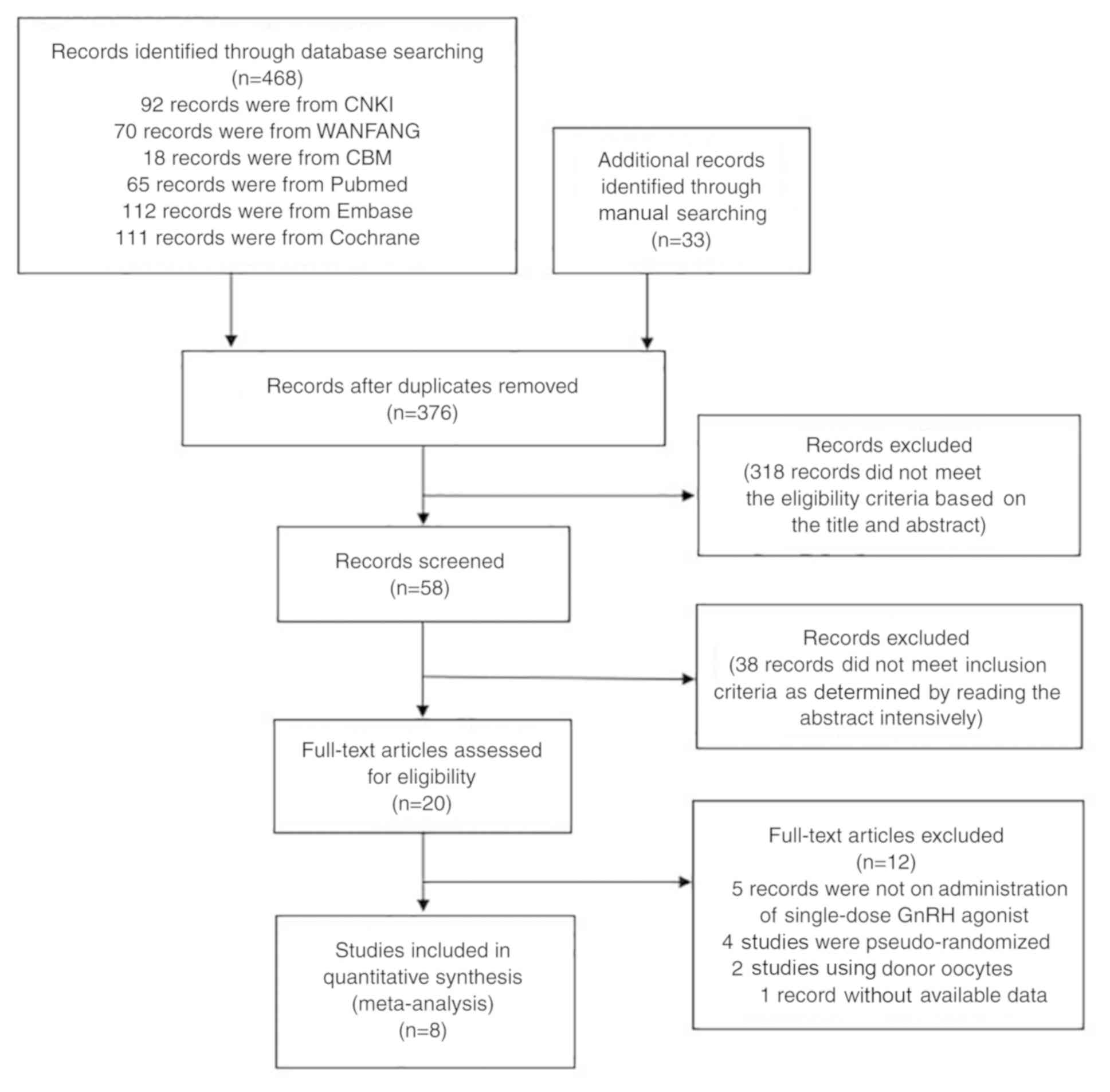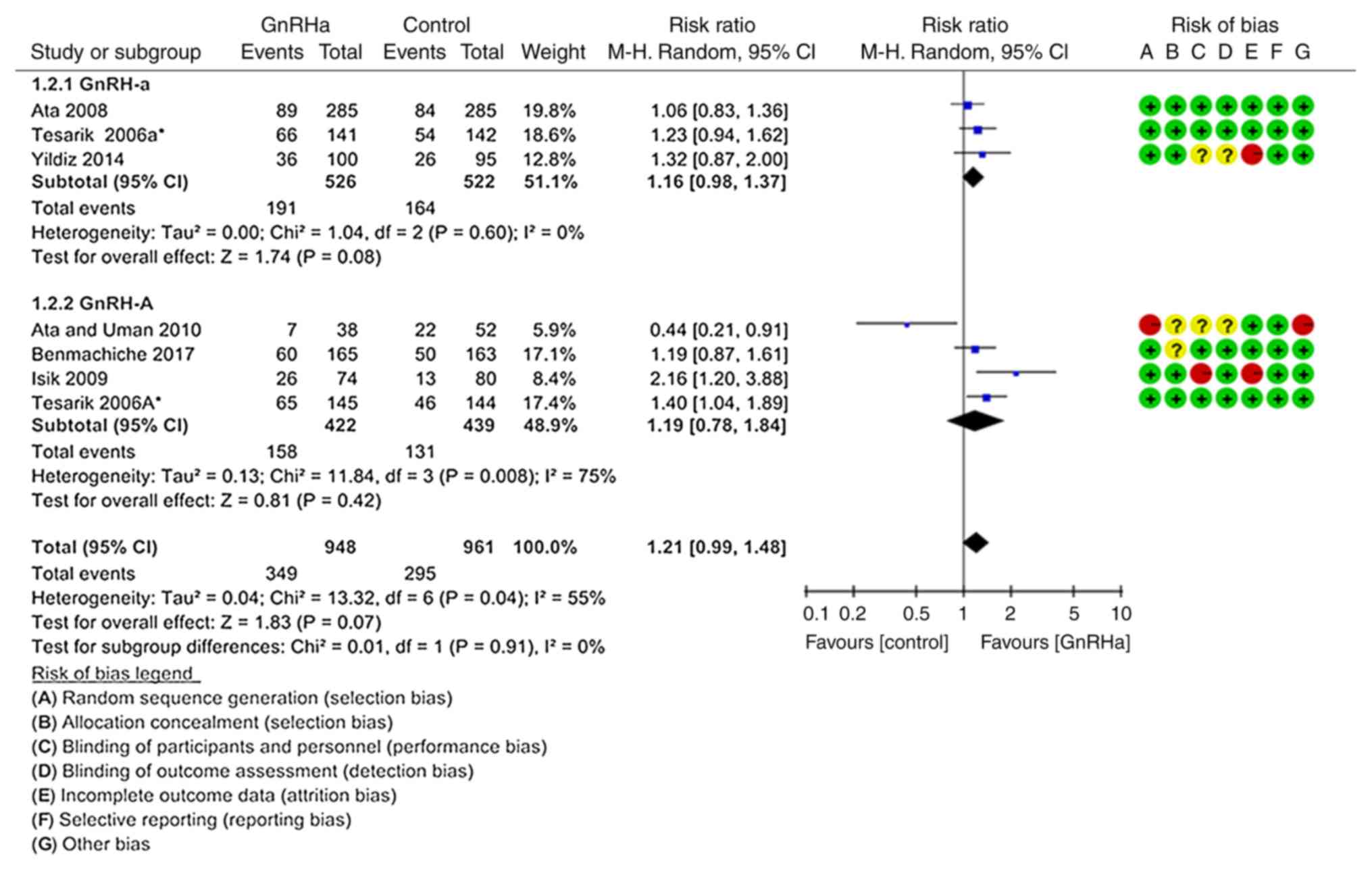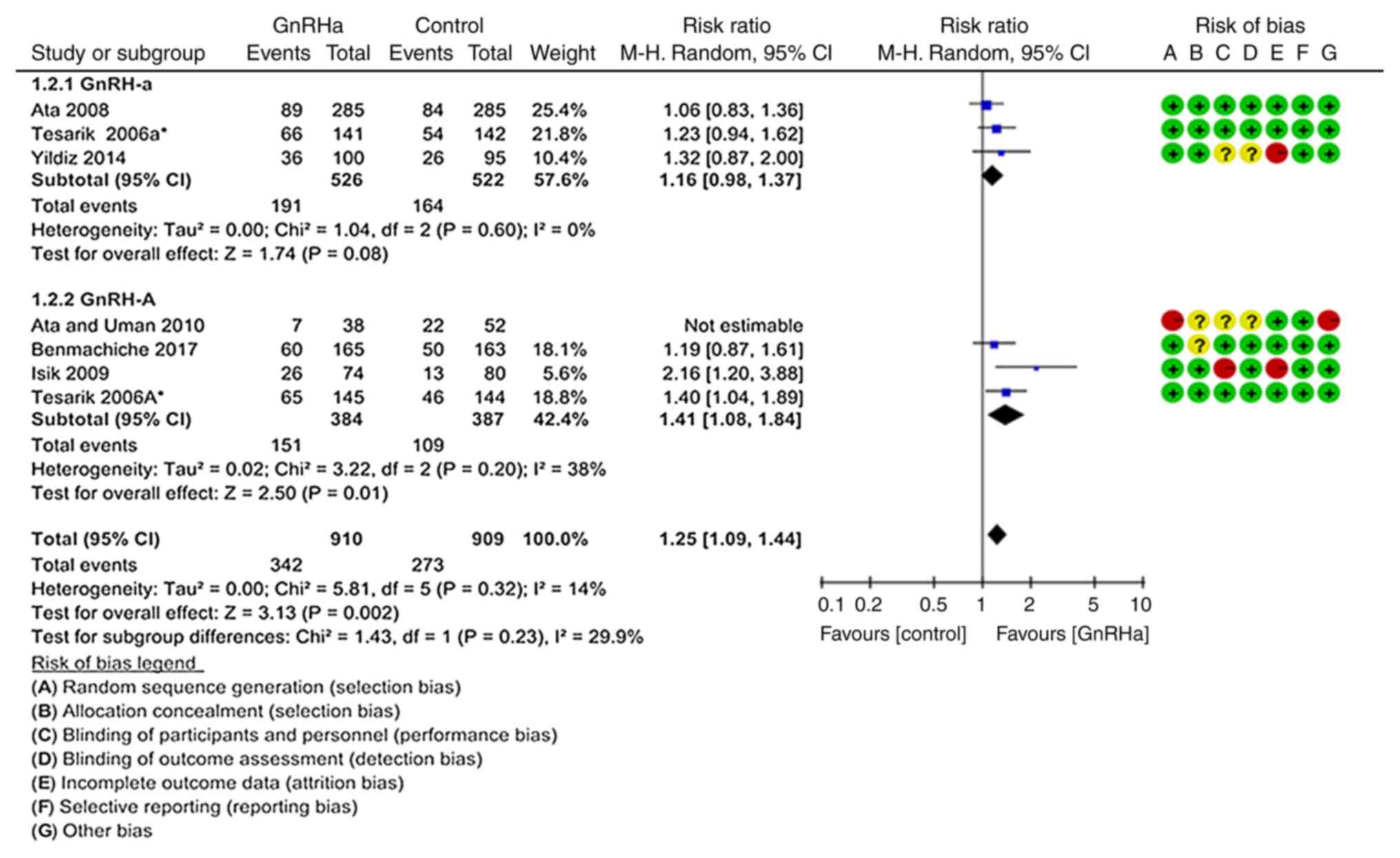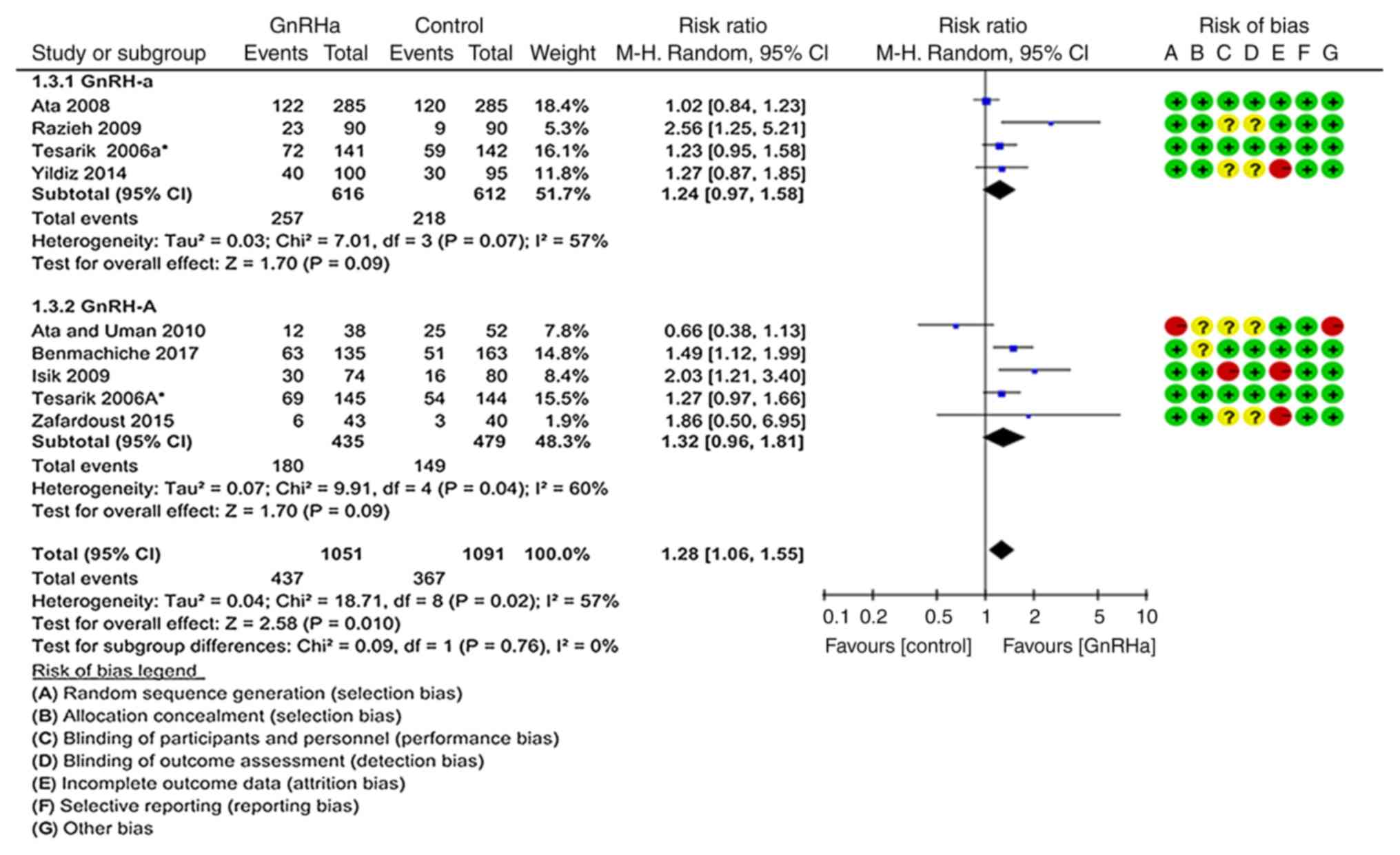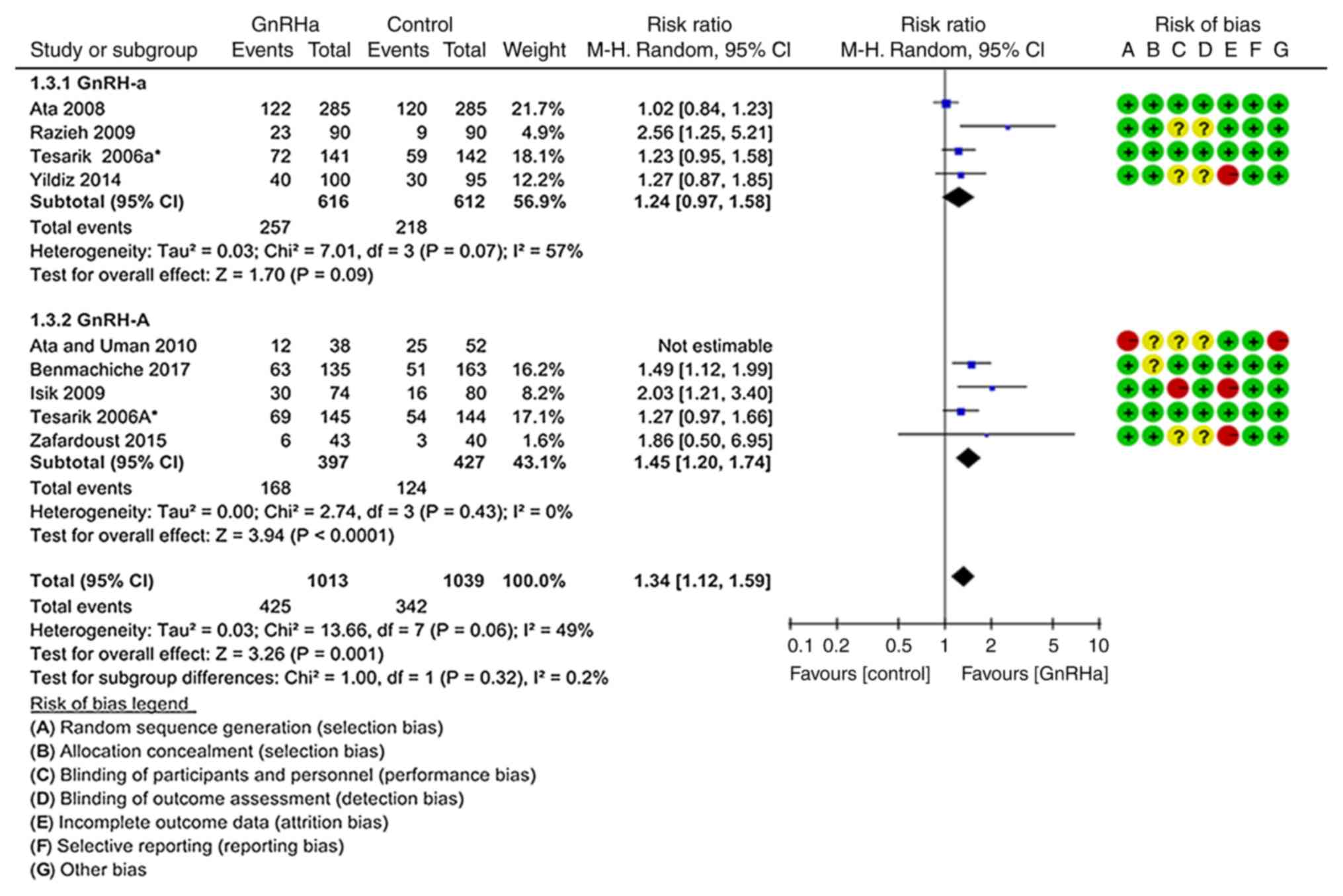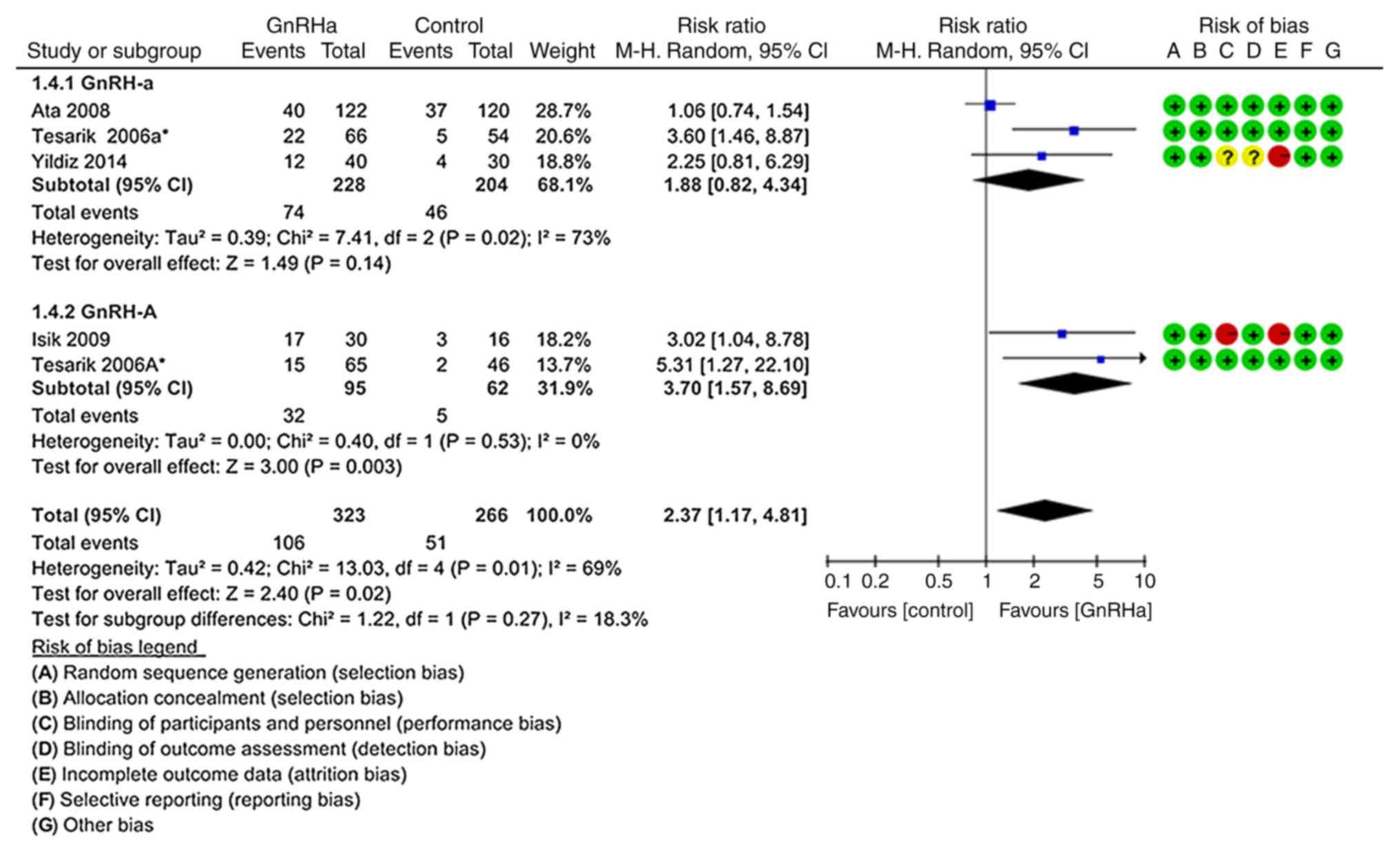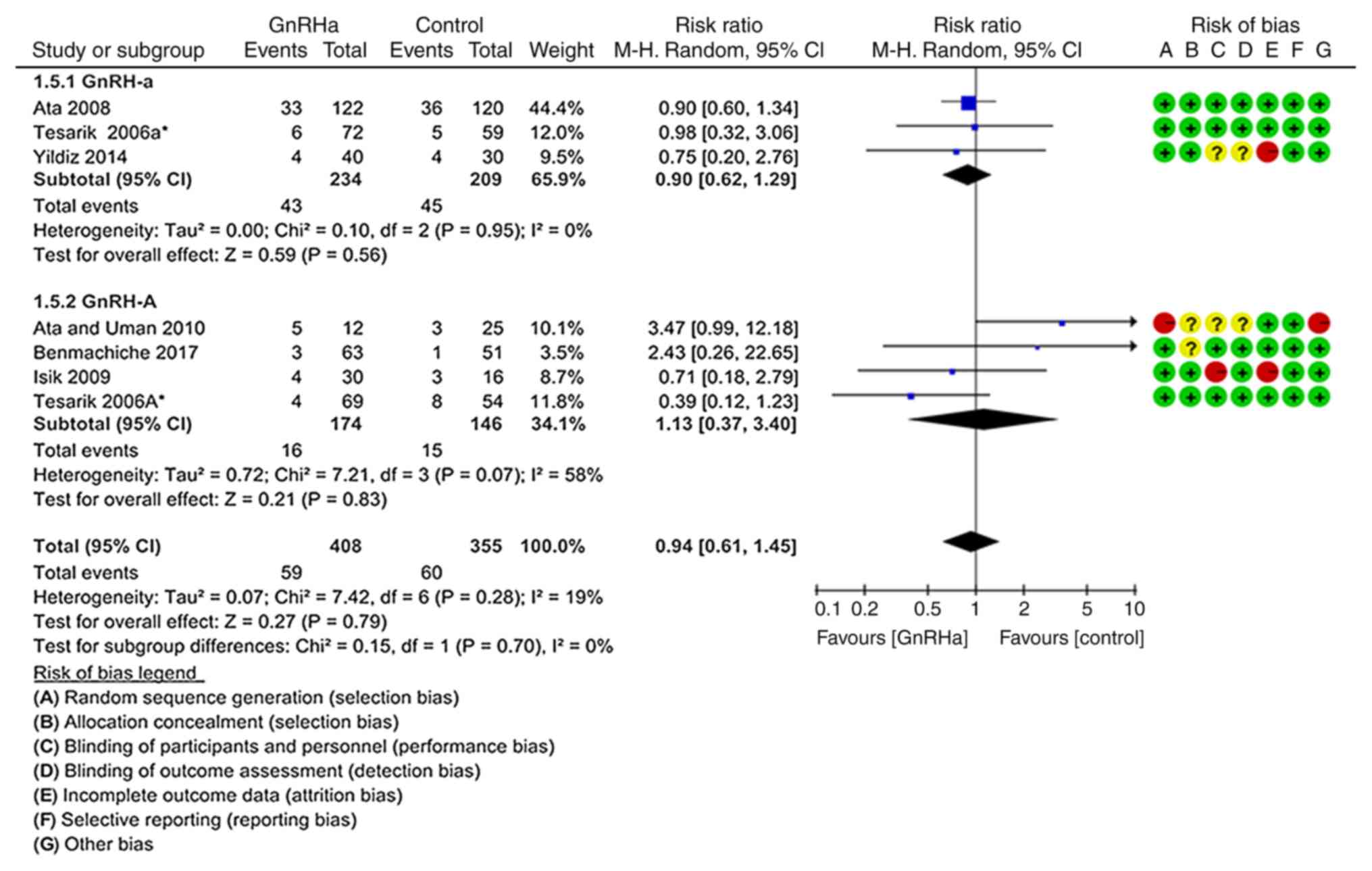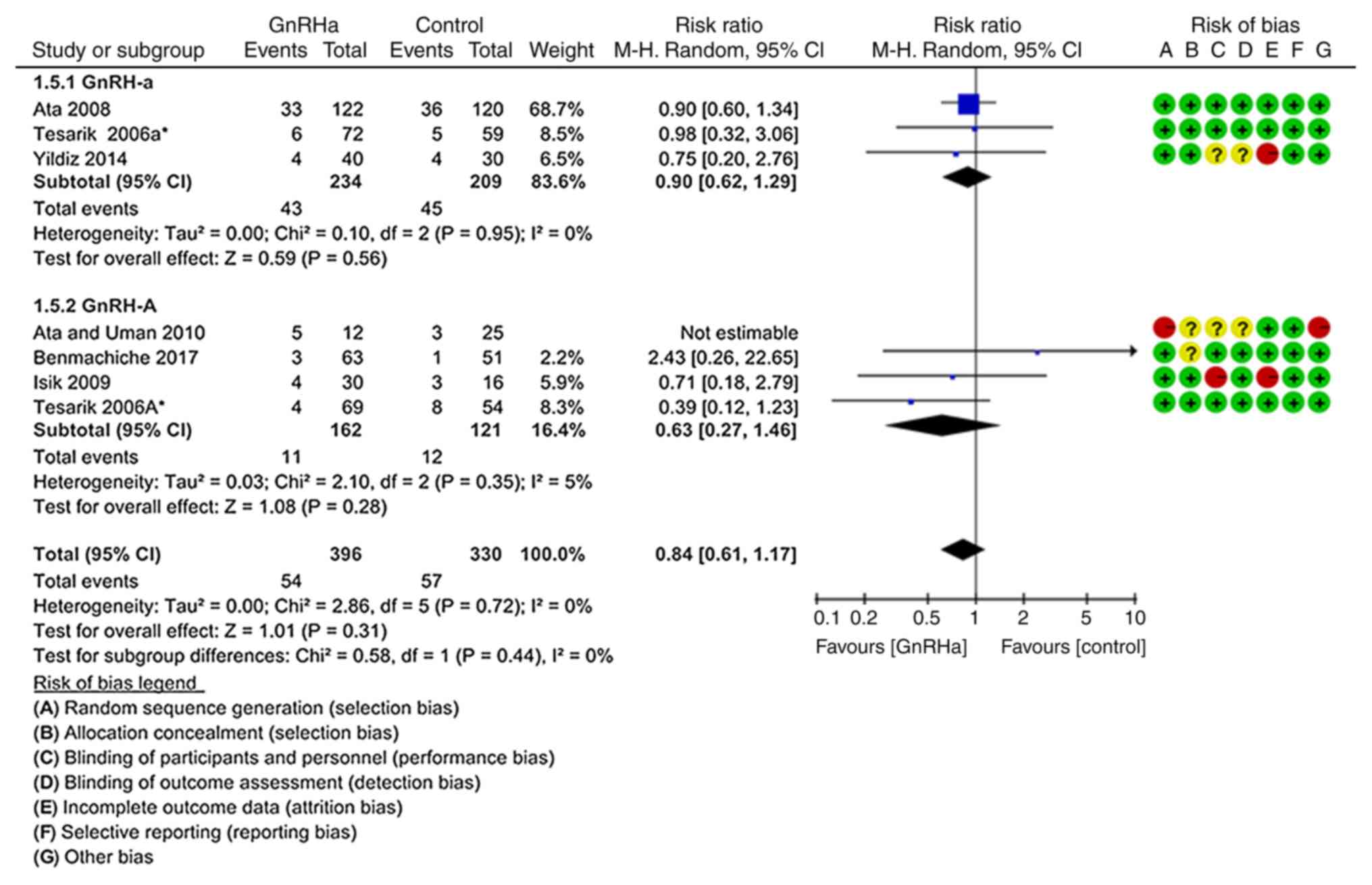|
1
|
Tavaniotou A, Albano C, Smitz J and
Devroey P: Impact ofovarian stimulation on corpus luteum function
and embryonicimplantation. J Reprod Immunol. 55:123–130. 2002.
View Article : Google Scholar : PubMed/NCBI
|
|
2
|
Pritts EA and Atwood AK: Luteal phase
support in infertilitytreatment: A meta-analysis of the randomized
trials. Hum Reprod. 17:2287–2299. 2002. View Article : Google Scholar : PubMed/NCBI
|
|
3
|
van der Linden M, Buckingham K, Farquhar
C, Kremer JA and Metwally M: Luteal phase support for assisted
reproduction cycles. Cochrane Database Syst Rev.
CD0091542015.PubMed/NCBI
|
|
4
|
Fatemi HM: The luteal phase after 3
decades of IVF: What do we know? Reprod Biomed Online. 19 (Suppl
4):S43312009. View Article : Google Scholar
|
|
5
|
Devroey P, Bourgain C, Macklon NS and
Fauser BC: Reproductive biology and IVF: Ovarian stimulationand
endometrial receptivity. Trends Endocrinol Metab. 15:84–90. 2004.
View Article : Google Scholar : PubMed/NCBI
|
|
6
|
Gizzo S, Andrisani A, Esposito F, Noventa
M, Di Gangi S, Angioni S, Litta P, Gangemi M and Nardelli GB: Which
luteal phase support is better for each IVF stimulation protocol to
achieve the highest pregnancy rate? A superiority randomized
clinical trial. Gynecol Endocrinol. 30:902–908. 2014. View Article : Google Scholar : PubMed/NCBI
|
|
7
|
Fujii S, Sato S, Fukui A, Kimura H, Kasai
G and Saito Y: Continuous administration of gonadotrophin-releasing
hormone agonist during the luteal phase in IVF. Hum Reprod.
16:1671–1675. 2001. View Article : Google Scholar : PubMed/NCBI
|
|
8
|
Tesarik J, Hazout A and Mendoza C:
Enhancement of embryo developmental potential by a single
administration of GnRH agonist at the time of implantation. Hum
Reprod. 19:1176–1180. 2004. View Article : Google Scholar : PubMed/NCBI
|
|
9
|
Casan EM, Raga F and Polan ML: GnRH mRNA
and protein expression in human preimplantation embryos. Mol Hum
Reprod. 5:234–239. 1999. View Article : Google Scholar : PubMed/NCBI
|
|
10
|
Nam DH, Lee SH, Kim HS, Lee GS, Jeong YW,
Kim S, Kim JH, Kang SK, Lee BC and Hwang WS: The role of
gonadotropin-releasing hormone (GnRH) and its receptor in
development of porcine preimplantation embryos derived from in
vitro fertilization. Theriogenology. 63:190–201. 2005. View Article : Google Scholar : PubMed/NCBI
|
|
11
|
Raga F, Casan EM, Kruessel J, Wen Y,
Bonilla-Musoles F and Polan ML: The role of gonadotropin- releasing
hormone in murine preimplantation embryonic development.
Endocrinology. 140:3705–3712. 1999. View Article : Google Scholar : PubMed/NCBI
|
|
12
|
Kyrou D, Kolibianakis EM, Fatemi HM,
Tarlatzi TB, Devroey P and Tarlatzis BC: Increased live birth rates
with GnRH agonist addition for luteal support in ICSI/IVF cycles: A
systematic review and meta-analysis. Hum Reprod Update. 17:734–740.
2011. View Article : Google Scholar : PubMed/NCBI
|
|
13
|
Oliveira JB, Baruffi R, Petersen CG, Mauri
AL, Cavagna M and Franco JG Jr: Administration of single-dose GnRH
agonist in the luteal phase in ICSI cycles: A meta-analysis. Reprod
Biol Endocrinol. 8:1072010. View Article : Google Scholar : PubMed/NCBI
|
|
14
|
Yu LP, Liu N and Liu Y: Effect of
luteal-phase gonadotropin-releasing hormone agonist administration
on pregnancy outcome in IVF/ICSI cycles: A systematic review and
Meta-analysis. Zhonghua Fu Chan Ke Za Zhi. 51:850–858. 2016.(In
Chinese). PubMed/NCBI
|
|
15
|
Zhou W, Zhuang Y, Pan Y and Xia F: Effects
and safety of GnRH-a as a luteal support in women undertaking
assisted reproductive technology procedures: Follow-up results for
pregnancy, delivery, and neonates. Arch Gynecol Obstet.
295:1269–1275. 2017. View Article : Google Scholar : PubMed/NCBI
|
|
16
|
Martins WP, Ferriani RA, Navarro PA and
Nastri CO: GnRH agonist during luteal phase for women undergoing
assisted reproductive techniques: Systematic review and
meta-analysis of randomized controlled trials. Ultrasound Obstet
Gynecol. 47:144–151. 2016. View Article : Google Scholar : PubMed/NCBI
|
|
17
|
Gordon A, Raynes-Greenow C, McGeechan K,
Morris J and Jeffery H: Risk factors for antepartum stillbirth and
the influence of maternal age in New South Wales Australia: A
population based study. BMC Pregnancy Childbirth. 13:122013.
View Article : Google Scholar : PubMed/NCBI
|
|
18
|
Reddy UM, Laughon SK, Sun L, Troendle J,
Willinger M and Zhang J: Prepregnancy risk factors for antepartum
stillbirth in the United States. Obstet Gynecol. 116:1119–1126.
2010. View Article : Google Scholar : PubMed/NCBI
|
|
19
|
Tesarik J, Hazout A, Mendoza-Tesarik R,
Mendoza N and Mendoza C: Beneficial effect of luteal-phase GnRH
agonist administration on embryo implantation after ICSI in both
GnRH agonist- and antagonist-treated ovarian stimulation cycles.
Hum Reprod. 21:2572–2579. 2006. View Article : Google Scholar : PubMed/NCBI
|
|
20
|
Ata B, Yakin K, Balaban B and Urman B:
GnRH agonist protocol administration in the luteal phase in ICSI-ET
cycles stimulated with the long GnRH agonist protocol: A
randomized, controlled double blind study. Hum Reprod. 23:668–673.
2008. View Article : Google Scholar : PubMed/NCBI
|
|
21
|
Isik AZ, Caglar GS, Sozen E, Akarsu C,
Tuncay G, Ozbicer T and Vicdan K: Single-dose GnRH agonist
administration in the luteal phase of GnRH antagonist cycles: A
prospective randomized study. Reprod Biomed Online. 19:472–477.
2009. View Article : Google Scholar : PubMed/NCBI
|
|
22
|
Razieh DF, Maryam AR and Nasim T:
Beneficial effect of luteal-phase gonadotropin-releasing hormone
agonist administration on implantation rate after intracytoplasmic
sperm injection. Taiwan J Obstet Gynecol. 48:245–248. 2009.
View Article : Google Scholar : PubMed/NCBI
|
|
23
|
Ata B and Urman B: Single dose GnRH
agonist administration in the luteal phase of assisted reproduction
cycles: Is the effect dependent on the type of GnRH analogue used
for pituitary suppression? Reprod Biomed Online. 20:165–166. 2010.
View Article : Google Scholar : PubMed/NCBI
|
|
24
|
Yildiz GA, Şükür YE, Ateş C and Aytaç R:
The addition of gonadotrophin releasing hormone agonist to routine
luteal phase support in intracytoplasmic sperm injection and embryo
transfer cycles: A randomized clinical trial. Eur J Obstet Gynecol
Reprod Biol. 182:66–70. 2014. View Article : Google Scholar : PubMed/NCBI
|
|
25
|
Zafardoust S, Jeddi-Tehrani M, Akhondi MM,
Sadeghi MR, Kamali K, Mokhtar S, Badehnoosh B, Arjmand-Teymouri F,
Fatemi F and Mohammadzadeh A: Effect of administration of single
dose GnRH agonist in luteal phase on outcome of ICSI-ET cycles in
women with previous history of IVF/ICSI failure: A randomized
controlled trial. J Reprod Infertili. 16:116–120. 2015.
|
|
26
|
Benmachiche A, Benbouhedja S, Zoghmar A,
Boularak A and Humaidan P: Impact of mid-luteal phase GnRH agonist
administration on reproductive outcomes in GnRH agonist-triggered
cycles: A randomized controlled trial. Front Endocrinol (Lausanne).
8:1242017. View Article : Google Scholar : PubMed/NCBI
|
|
27
|
Wilshire GB, Emmi AM, Gagliardi CC and
Weiss G: Gonadotropin-releasing hormone agonist administration in
early human pregnancy is associated with normal outcomes. Fertil
Steril. 60:980–983. 1993. View Article : Google Scholar : PubMed/NCBI
|
|
28
|
Pirard C, Loumaye E, Laurent P and Wyns C:
Contribution to more patient-friendly ART treatment: Efficacy of
continuous low-dose GnRH agonist as the only luteal support-results
of a prospective, randomized, comparative study. Int J Endocrinol.
2015:7275692015. View Article : Google Scholar : PubMed/NCBI
|
|
29
|
Aboulghar MA, Marie H, Amin YM, Aboulghar
MM, Nasr A, Serour GI and Mansour RT: GnRH agonist plus vaginal
progesterone for luteal phase support in ICSI cycles: A randomized
study. Reprod Biomed Online. 30:52–56. 2015. View Article : Google Scholar : PubMed/NCBI
|
|
30
|
Chillik CF, Itskovitz J, Hahn DW, McGuire
GL, Danforth DR and Hodgen GD: Characterizing pituitary response to
a gonadotropin-releasing hormone (GnRH) antagonist in monkeys:
Tonic follicle-stimulating hormone/luteinizing hormone secretion
versus acute GnRH challenge tests before, during, and after
treatment. Fertil Steril. 48:480–485. 1987. View Article : Google Scholar : PubMed/NCBI
|
|
31
|
Gordon K, Williams RF, Danforth DR and
Hodgen GD: A novel regimen of gonadotropin-releasing hormone (GnRH)
antagonist plus pulsatile GnRH: Controlled restoration of
gonadotropin secretion and ovulation induction. Fertil Steril.
54:1140–1145. 1990. View Article : Google Scholar : PubMed/NCBI
|
|
32
|
Felberbaum RE, Reissmann T, Küpker W,
Bauera O, al Hasania S, Diedrich C and Diedricha K: Preserved
pituitary response under ovarian stimulation with HMG and GnRH
antagonists (Cetrorelix) in women with tubal infertility. Eur J
Obstet Gynecol Reprod Biol. 61:151–155. 1995. View Article : Google Scholar : PubMed/NCBI
|
|
33
|
Iwashita M, Kudo Y, Shinozaki Y and Takeda
Y: Gonadotropin-releasing hormone increases serum human chorionic
gonadotropin in pregnant women. Endocr J. 40:539–544. 1993.
View Article : Google Scholar : PubMed/NCBI
|
|
34
|
Lin LS, Roberts VJ and Yen SS: Expression
of human gonadotropin-releasing hormone receptor gene in the
placenta and its functional relationship to human chorionic
gonadotropin secretion. J Clin Endocrinol Metab. 80:580–585. 1995.
View Article : Google Scholar : PubMed/NCBI
|















